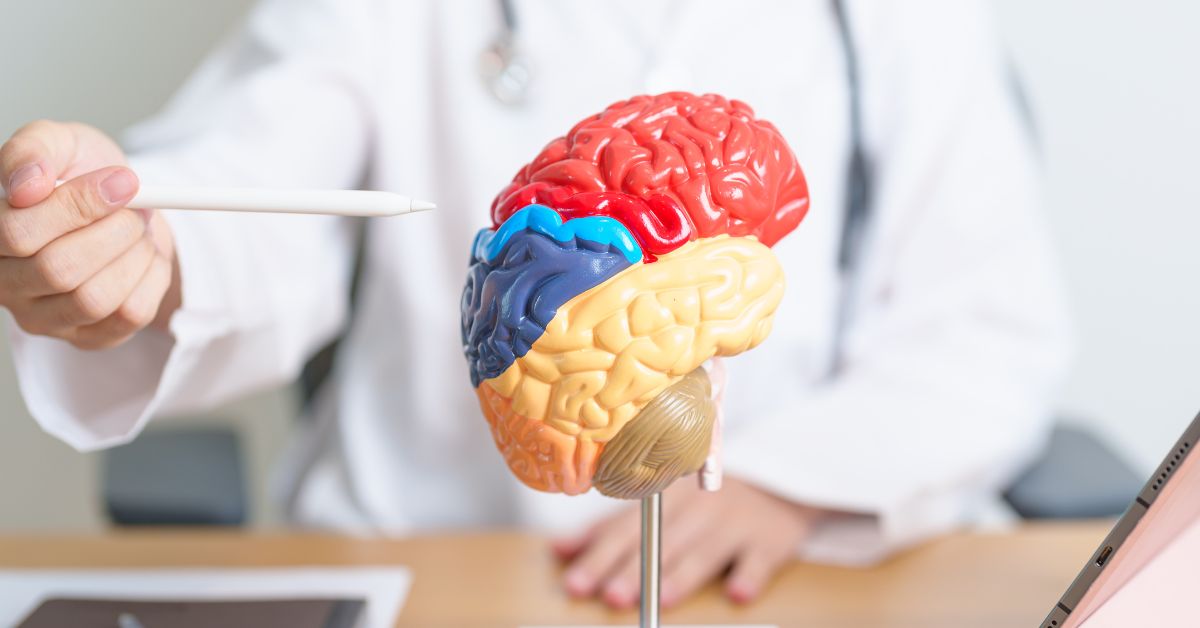Have you ever watched your teenager walk out the door and felt a knot form in the pit of your stomach? You’re not alone. As parents, we often wonder if we’ve given our children the right tools to navigate teenhood. It’s a time when the world seems to expand at a dizzying pace. The choices they face can leave us feeling like we’re standing on the sidelines.
As a mother, you might be holding your breath, hoping that the foundation you’ve laid is strong enough. Let’s find out why these years are so critical. Also, we’re going to learn how we can use this knowledge to protect our children from the dangers of drug abuse.
Why Is Adolescence a Critical Time to Prevent Drug Abuse?
Why is it such a crucial time for preventing drug abuse among youth? Well, think about it. This is when our kids are painting the picture of who they are going to be. They tend to experiment with strokes of independence, peer relationships, and self-identity.
This is the time when the brain is still under construction. The decisions they make can either support or, unfortunately, weaken the structure.
The teen years are a time of exploration and identity formation. This is when individuals are most susceptible to making choices that could affect the rest of their lives.
Preventing drug misuse during this time is crucial because the brain is still developing. This development means that teens are at a heightened risk for forming habits that can stick with them well into their adult years.
The National Institute on Drug Abuse highlights that early use of substances like alcohol and drugs can disrupt brain function in areas critical to motivation. It can impair aspects like learning, habit formation, and judgment. When young people start using drugs or alcohol, it can change how their brains work. Alcohol misuse can lead to addiction and other serious problems down the road.
Why Are Some Adolescents More Vulnerable to Substance Abuse?

Individual differences mean that some teens are at higher risk of abuse.
Certain factors make teenagers more susceptible to abuse disorders. Genetics, mental health conditions, and traumatic experiences are some of them. Recognizing these vulnerabilities can help in tailoring prevention strategies.
What Are the Risk Factors for Adolescent Drug Abuse?
There are quite a few things that put kids at risk for addiction. Peer dynamics, family relationships, and accessibility to drugs in schools or neighborhoods are just a few.
A lot of folks talk about how friends can nudge someone in that direction, but there’s more to it than just that. The way a family gets along or doesn’t can play a big part. If drugs are easy to find at school or around the neighborhood, that’s another thing that can lead a teen down a tough path. We shouldn’t overlook the battles some of these kids are fighting on the inside. They are fighting with their own mental and physical health.
Now, when a teenager’s life is going through big changes, like moving to a new school or starting high school, the risk can shoot up. These times in life often mean new groups of friends. Different kinds of hangouts may have drugs floating around. It’s also a time when the urge to try new, sometimes risky things can be stronger in young folks.
How Do Peer Pressure and Social Circles Influence Teen Drug Use?
Teens are often influenced by their social circles and the desire to fit in, which can lead to experimenting with drugs. Peer pressure can be a strong force. It’s especially powerful when combined with common curiosity and risk-taking behaviors during this stage of their lives.
Understanding the things that influence teen drug use can help parents and guardians. Supporting their teens more effectively against the pressures they face is critical.
How Cultural Factors Affect Drug Use in Teens
Cultural factors can influence teens’ attitudes toward alcohol and drugs. This includes norms, beliefs, and values. In some cultures, substance use may be more accepted or even expected in certain social situations.
Being aware of these cultural influences is important for developing effective prevention programs.
How Does Teen’s Brain Development Affect Drug Use?

You might find it surprising, but a teenager’s brain is a bit like only a half-built car. It’s still putting itself together. Let’s take a look at how this influences a young person’s encounters with drugs.
Understanding Adolescent Brain Changes
When we talk about the teenage years, we’re discussing a significant time for growth—not just physically, but mentally too. During this stage, the brain is like a work in progress. It’s making a lot of changes. It’s building new connections and figuring out which old ones aren’t needed anymore.
- Maturation of the Prefrontal Cortex: This part of the brain is still developing in teens. It’s responsible for planning, making decisions, and controlling impulses.
- Growth of the Limbic System: Emotions and rewards are processed here. It’s developing, too, which can make teens more sensitive to the effects of drugs and alcohol.
The Impact of Substances on Developing Brains
Introducing drugs and alcohol into the mix during teenage years can mess with the brain’s natural growth process.
- Interference with Learning: Drugs and alcohol can disrupt how the brain processes information.
- Behavioral Challenges: Young people might have a harder time managing their actions.
- Emotional Health Risks: Mood disorders or emotional instability can become more likely.
Balancing Risk and Protective Factors
This balance is super important. We’re talking about the things that might push a teen towards using drugs versus the things that could keep them safe.
- Risk Factors: These include peer pressure, stress, and a desire for new experiences.
- Protective Factors: Good communication with parents is vital. They have to provide a stable home environment and positive outlets for stress. This all helps to protect them against drug use.
The Importance of Prevention
Knowing all this, it’s clear that keeping drugs away from teens is more than just telling them to say no. It’s about helping their brains develop strong and healthy without the interference of external agents like drugs.
- Education can encourage teens to make smart choices by teaching them how their brains are growing.
- Creating a supportive environment can help teens deal with the pressures. These pressures might lead them to experiment with drugs.
- Early Intervention: If drug use does start, catch it early. Try to prevent long-term damage and support recovery.
Now, I know this might seem like a lot to take in, and it’s not always easy to talk with teens about these things. Remember, they won’t have all the answers, and neither will you. Together, you can work towards making choices that support a happy, healthy future.
What Long-Term Effects Can Adolescent Drug Use Have on Brain Function?
Substance use during this critical period can disrupt the normal path of brain development. Alcohol affects areas related to behavior control, pleasure and reward, and mental health.
This disruption can have lasting consequences well into adulthood.
How Can Early Intervention Prevent Drug Addiction in Adolescents?

Getting help early can make a difference in stopping drug addiction before it starts.
Experts have put together a bunch of programs that help tip the scales away from the risky stuff that can lead to addiction and toward the good stuff that can protect someone. These programs aren’t one-size-fits-all; they’re made for folks of different ages and can be done one-on-one or with a group. We actually have several to choose from as well because it’s important that the program feels right for the person it’s meant to help.
Whether you are raising a teenager or struggling with the challenges of parenting a drug-addicted adult, the goal here is to tackle the risky things that can lead to drug use and boost up the protective things to keep addiction at bay.
What Role Do School and Community Play in Preventing Adolescent Substance Abuse?
School or community environments are critical in shaping adolescents’ attitudes and behaviors toward drugs. Educational programs, as well as strong support networks within the school and home, can provide the necessary guidance and understanding that young people often need when they’re faced with tough choices about drugs.
These settings offer opportunities for them to engage in healthy social activities that do not involve drug use.
What Protective Factors Can Counteract the Risk of Drug Abuse?
Knowing how to avoid drug abuse means being aware of tools and support systems. These can help our loved ones stay strong when dealing with addiction. Let’s take a look at the strategies and resources that provide stability and safety for them during these challenging times.
- Strong Family Bonds: Having a close-knit family can provide the support and stability that helps steer teens away from drugs.
- Positive Social Connections: Good friendships and a network of caring individuals can influence teenagers to make healthy choices.
- Success in Academic and Extracurricular Activities: Encourage them to achieve goals in school. Hobbies can boost self-esteem and provide a sense of purpose. All this results in reducing the temptation to use drugs.
- Clear Understanding of the Consequences of Drug Use: When teens know the risks and the impact drug use can have on their lives, they’re more likely to avoid it.
Opening Doors to a Promising Future

We’ve walked through the twists and turns of teenage years and the impact it can have on the choices our kids make, especially when it comes to drugs. This time in their lives is delicate, a period when the brain is laying down the tracks for the future. As parents, our role is to be the steady hands that guide them, armed with understanding, patience, and the right information.
If you’ve read this and find yourself with questions or concerns or just need someone to talk it through with, don’t hesitate to reach out. We’re here to help you. Together, we can keep the lines of communication open and navigate this journey with a little more confidence and a lot less fear.
Frequently Asked Questions About Why Is Adolescence Such a Crucial Time for Preventing Drug Abuse
Why is an adolescent especially susceptible to drug addiction?
Adolescents are especially susceptible to drug addiction because their brains are still developing. This makes them more prone to risky behaviors and less able to foresee the long-term consequences of their actions. During this stage, the parts of the brain responsible for judgment, decision-making, and self-control are not fully mature. This leads to impulsive decisions like trying drugs without considering the harm. Plus, the need to fit in with peers can create pressure to experiment, and these social factors, combined with biological changes, make teens more vulnerable to substance abuse.
Is adolescence a critical risk period for the initiation of substance abuse?
Yes, it is a critical risk period for the initiation of substance abuse. This is a time when many young people encounter alcohol or even drugs for the first time. Social pressure to fit in combines with a natural curiosity and desire for new experiences. All this can lead to abuse. The brain is still forming connections at this age. Exposure to drugs can alter its development, potentially setting a foundation for addiction.
Why adolescents are at risk for substance abuse problems?
Adolescents are at risk for substance abuse problems due to a mix of biological, psychological, and social factors. Biologically, their brains are going through significant changes, which can affect decision-making and increase impulsivity. Psychologically, they are dealing with identity issues, independence, and emotions, which can lead them to seek comfort in substances. Socially, peer pressure and a desire to be accepted play a huge role in their risk-taking behaviors, including experimenting with drugs and alcohol.
Why is it especially important with regard to development to not do drugs during adolescence?
It’s especially important not to do drugs during puberty with regard to development because this is a pivotal time for brain growth. The teenage brain is laying down critical pathways related to emotion, reward, and higher-order thinking. Introducing drugs into the mix can disrupt this process, potentially leading to long-term cognitive and emotional issues and even altering the brain’s reward system, which can heighten the risk of developing substance abuse disorders later in life.
